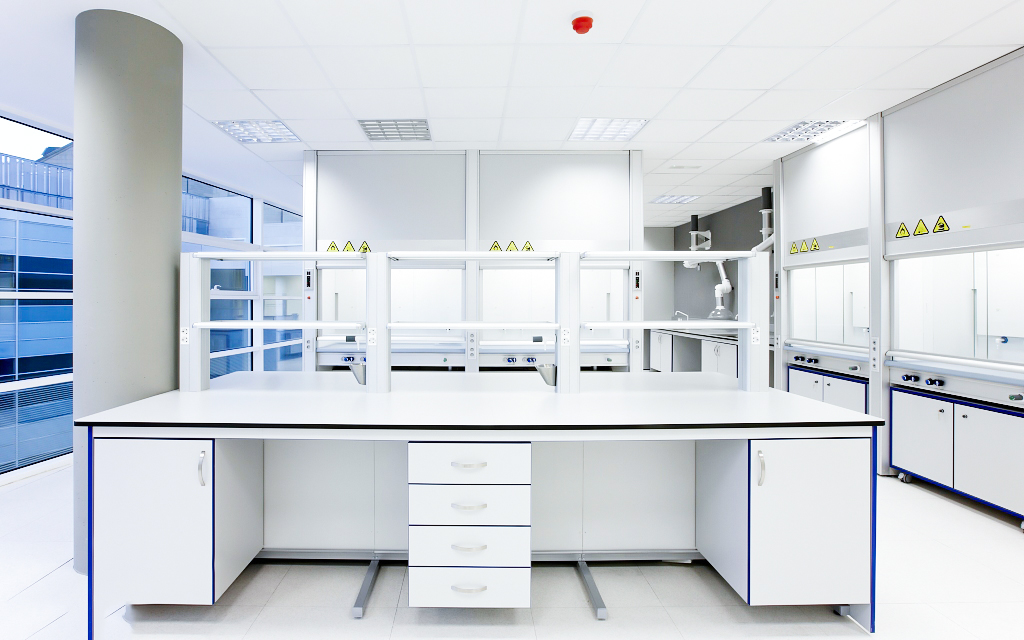Welcome to the official website of Xidi laboratory, the laboratory design and decoration recognize Xidi!
|
|
Home >> News >> Technology
文章出处:Technology|阅读量:1342|发表时间:2021-04-15
With the rapid development of electronic information technology, electronic equipment systems are becoming more and more high-speed, complex and integrated, usually including various printed circuit boards (PCB), electromechanical systems, switching noise circuits, high-speed chips, cable harnesses, The interconnection design of multiple parts such as the chassis and cabinet is very complicated, so it is a very difficult task to carry out electromagnetic compatibility analysis and design for such a complicated system. The electromagnetic compatibility test itself is a time-consuming and cumbersome task: it is necessary to use an electromagnetic compatibility anechoic chamber to measure in the whole airspace and the whole frequency band, which is costly and requires extra precision. The traditional EMC design process is generally through the product operation process of processing-welding-testing-debugging-revision. In today's high-speed information era, it can no longer meet the requirements of high efficiency, high reliability and high performance of product EMC design.

Building a professional electromagnetic compatibility laboratory is the goal that every laboratory integration service provider has been pursuing. In this article, CEIDI will popularize relevant knowledge and hope to share it with more laboratory practitioners. The electromagnetic compatibility laboratory is a special kind of laboratory established for electromagnetic compatibility testing. First, explain the basic concept of electromagnetic compatibility: refers to the ability of electromagnetic systems and sub-systems to work normally in their respective electromagnetic environments without reducing their performance due to electromagnetic interference. In order to regulate the electromagnetic compatibility of electronic or other products, it is necessary to carry out relevant electromagnetic compatibility tests according to relevant international standards or national standards, and the place where the electromagnetic compatibility tests are carried out is the electromagnetic compatibility laboratory. The configuration status of the electromagnetic compatibility laboratory of the complete system is as follows:
The construction content of the main part of the EMC laboratory: shielded semi-dark room, conduction test room, control room, power amplifier room, load room, power distribution room
EMC laboratory auxiliary facilities include: automatic fire alarm system and fire-fighting facilities , ventilation and air-conditioning system, TV monitoring system, lighting system, etc.
With the formulation and mandatory implementation of more and more electromagnetic compatibility directives, specifications, and standards at home and abroad, the electromagnetic compatibility of electrical and electronic products is increasingly being valued by governments and domestic and foreign manufacturers. Academic discussion related to this has also become a hot spot. We have compiled a case of an EMC laboratory in an automotive industry from academic materials, so that relevant practitioners can learn from it.
An electromagnetic compatibility laboratory in the automotive industry is mainly composed of four parts: a semi-anechoic chamber, a conduction test shielding room, a shielding amplifier room and a shielding control room. The shield size of the darkroom is 17.6m in length, 13.5m in width, and 9.5m in height. The darkroom is equipped with a turntable with a bearing capacity of 8000kg and a diameter of 5m, an automatic lifting antenna system of 0.8-4m, and an exhaust gas exhaust system. The working frequency of the darkroom is 9kHz~40GHz, and the quiet area of the test area above the turntable in the darkroom is a cylinder with a height of <4m and a height of 2m. The inside of the dark room is also equipped with a pneumatic fixing device and a cooling fan. It can complete the radiation and conduction emission test, radiation and conduction immunity test of the entire automobile and its electronic parts, motorcycle and its electronic parts, as well as the electrostatic discharge test of the entire vehicle.
The size of the conduction test shielding room is 8.0m in length, 4.0m in width, and 3.0m in height. It can not only complete the tests of the conduction transient emission, conduction immunity, electrostatic discharge, etc. of auto parts, but also complete household appliances, electric appliances, etc. Tools, electrical lighting equipment, etc. conduction disturbance voltage, absorbed power, disturbance magnetic field and other items test.